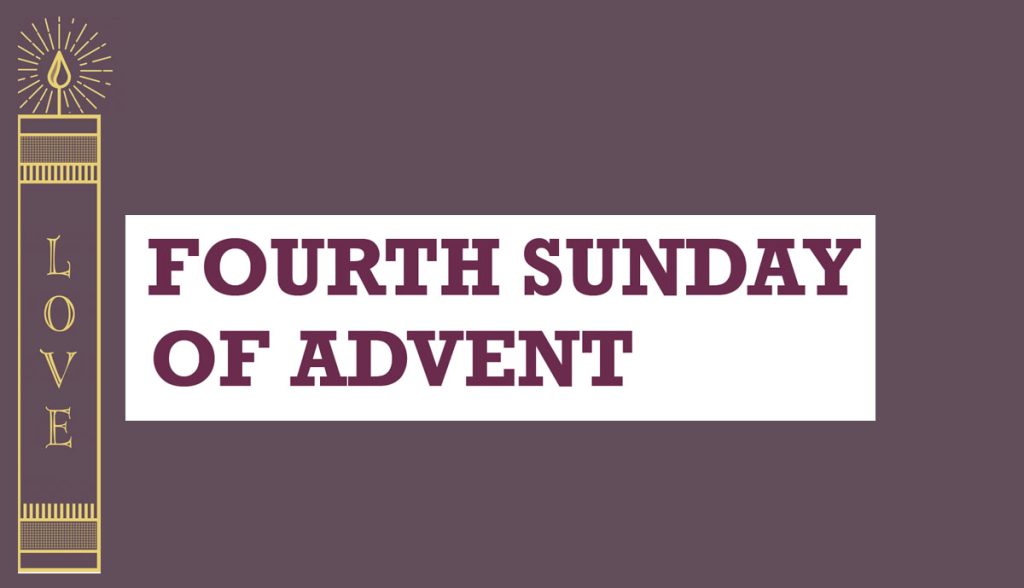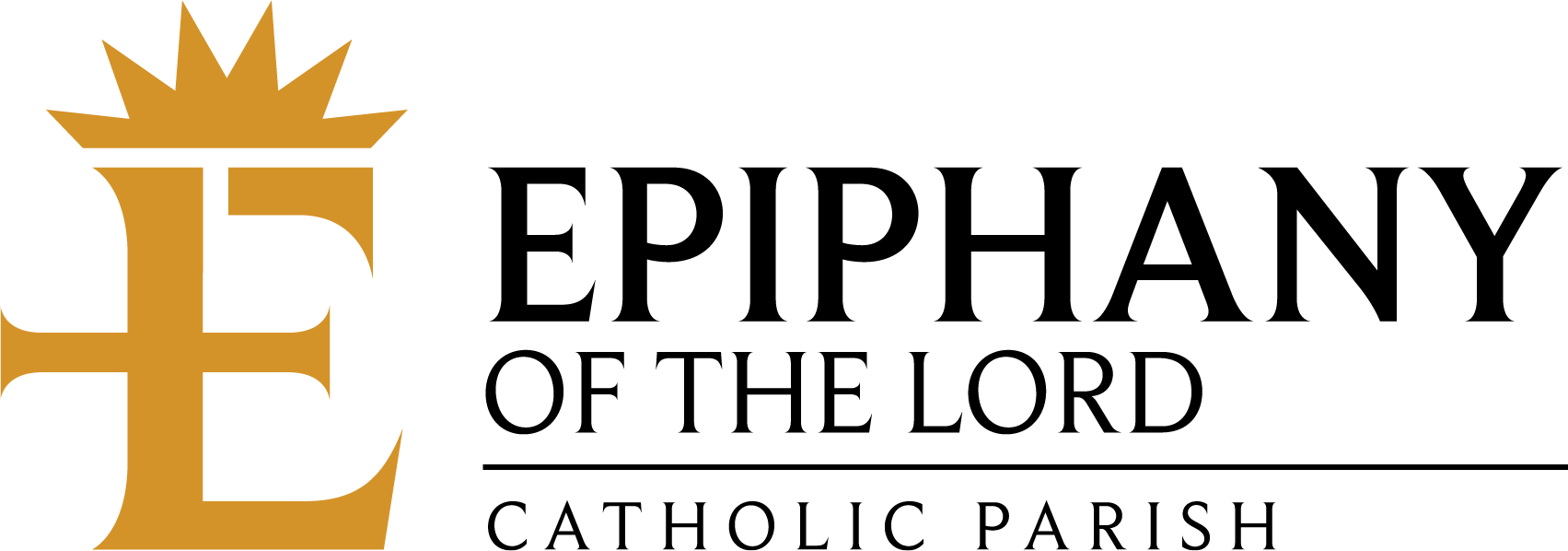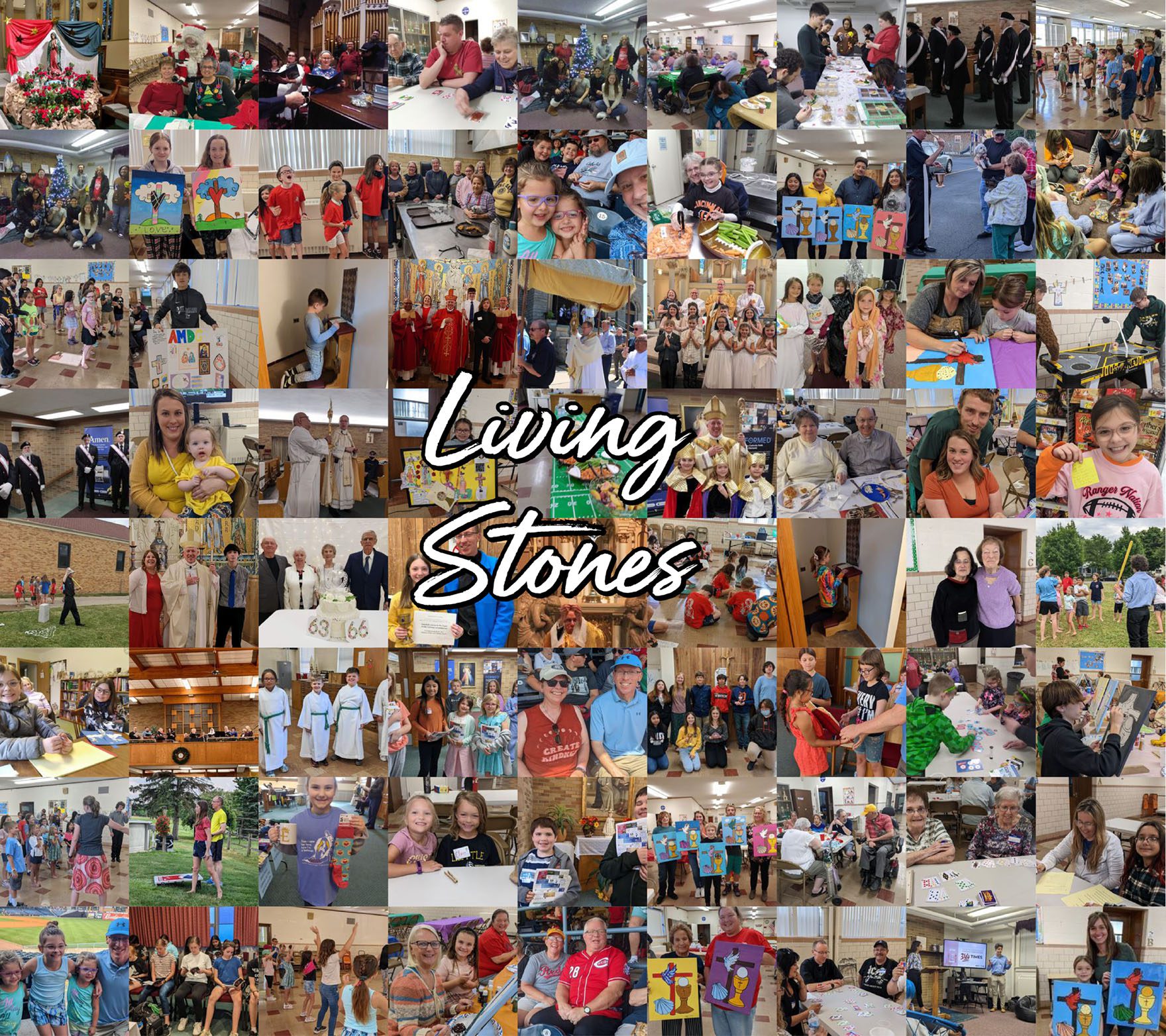
4th Sunday of Advent
Two Mothers-Blessed Virgin Mary and Elizabeth – Come Together to Affirm Their Faith in the God of Love
Dedicated To: All the Mothers of the Parish of the Epiphany of the Lord
The Gospel of the Liturgy of today, Fourth Sunday of Advent, tells of Mary’s visit to Elizabeth (Luke 1:39-45). After receiving the annunciation of the angel, the Virgin does not stay at home, thinking over what has hap-pened and considering the problems and pitfalls, which were certainly not lacking: because, poor girl, she did not know what to do with this news, with the culture of that age. She did not understand. On the contrary, she first thinks of someone in need; instead of being absorbed in her own problems, she thinks about someone in need, she thinks about Elizabeth, her relative, who was advanced in years and with child, something strange and miraculous. Mary sets out with generosity, without letting herself be daunted by the discomforts of the journey, responding to an inner impulse that called her to be close and to help. (Pope Francis, Angelus, 2021)
Dear Friends, the Final Advent Candle marks the beginning of the final week before Christmas and it is a time of prayer. It is called the Angels Candle. The angels announced that Jesus came to bring peace. He came to bring people close to God and to each other again in love. God is Love’s Embodiment.
The Fourth Sunday of Advent basing itself on Luke 1:39-45, focuses on the theme of joyful anticipation as embod-ied by Mary’s visit to Elizabeth, highlighting how their encounter exemplifies the imminent arrival of God and Grace and the importance of recognizing and sharing that joy with others, especially in the face of uncertainty or hardship; emphasizing the leap of faith both women demonstrate in believing the Good News despite their unique situation.
The Two Women are Mary and her cousin Elizabeth. Both women are pregnant: Mary with Jesus and Elizabeth with John the Baptist. But it is really Elizabeth on which this scene centers. Earlier in the Gospel, the angel Gabriel told Mary that Elizabeth who was advanced in age and unable to have children, was now pregnant and in her sixth month. These two holy women are God’s Angels.
One can imagine in these circumstances that Elizabeth had many fears about her pregnancy. The worries of every mother were intensified in her case. Would her baby live? Would he be healthy? Would she be able to deliver him successfully? Indeed, it was probably in light of these fears that Mary set out in haste to be with her cousin during this difficult pregnancy. Now, all these details are important to understand when we come to the central focus of this scene. That focus is a movement. It is the movement of John the Baptist in his mother’s womb. It is a move-ment that only a mother can feel, and it is very likely that it was at Mary’s visit that Elizabeth first felt her child move within her.
Dear parishioners, now at this point, there should really be a mother to write this Reflection, because only a mother can describe what it feels like to have life move within you. Only a mother can describe the joy in know-ing that your baby is alive-not because your body is changing, or not because a doctor told you so, but because a mother can feel that life moving in her very being. This visitation story, then, is a story of hope. It tells us that in uncertain and difficult circumstances, we can have reason to trust that things will turn out well because of small but certain movements of life within us. What a great lesson from a mother!
In today’s Gospel, Mary comes to visit her cousin Elizabeth. Now there is no miracle in this story. The miracles happen a few verses earlier, where Elizabeth conceives in her old age and Mary conceives by the Holy Spirit. What happens in the story of the Visitation is that Mary and Elizabeth celebrate their connectedness to each other. Mary comes to help Elizabeth in the last months of her pregnancy and Elizabeth recognizes Mary’s gift and calls her blessed for being the Mother of the Savior. These two women come together so that they can share their questions and their doubts in confidence, so that they can celebrate the wonder and the anticipation which both of them feel. The two women come together in order to affirm one another’s faith, to help each other on their way to God. What a fine tuning of two lives.
Dear parishioners of the Epiphany community, the story of the Visitation is both a description and an example of our connectedness to one another. Moreover, it points to that connectedness in a particular way. We are, of course, related in some way to all people. But the first person that Mary seeks out after being made the mother of the Savior is her cousin, a member of her own family. So in a particular way, the story of the Visitation reminds us of our connectedness to those who are closest to us, to the members of our own family. We need to connect ourselves with people.
This story of the visitation not only gives us information about Mary and Elizabeth, but it also gives us an example of how we are to live. This story reminds us of the importance of taking time to recognize and appreciate the people in our lives. We need this lesson this weekend more than ever. Let us emulate this example.
We should treasure them as a mother who is pregnant recognizes the movement of life within her and sees it as a sign that the promise of the future is coming to fulfillment. Stirrings of life in our family and in our world are God’s way of reminding us that goodness is growing around us and within us. It is our role, then, to feel that goodness and nurture it until the day when God brings it to birth.
Dear Epiphany community, like Mary and Elizabeth, we should recognize and celebrate our connectedness to one another. No one of us wants to arrive at the gates of heaven alone. Therefore, reach out today to members of your own family, so that you can continue on your journey to God together. This season is about the gift that God has given us in the people with whom we share our lives, in our connectedness to them.
With all that she had to do, with all that was on her mind, Mary found time to be with her cousin Elizabeth. Mary knew that nothing was more important than her and her cousin coming together to celebrate the new life that was growing within them. Let’s follow Mary’s example. Even if it means that you will not be able to do everything you want, do not let your responsibilities detract from the time and the appreciation of the people who will be with you this weekend.
Dear parishioners, take time to listen to people, to speak to them, to laugh with them and perhaps to cry with them. People come first and without people there can be no true celebration of Christmas. We all know that Christmas allows us to reach out in new ways to a variety of people. We can give our time and donations to those in need. We can greet the stranger on the street with holiday cheer. But the story of the Visitation asks us to be attentive to the people who are close to us. Often it is these people who have to bear the impatience and the frustration that we feel as we cope with the holidays. The Visitation asks us to love them first, to treat the people in our own household with kindness and with respect. Let all the things we do, all the traditions we follow are for the sake of the people we love. Jesus is Love and let us love one another and stay connected.
I wish and pray that all the Mothers of the Parish of the Epiphany of the Lord come together to affirm their faith in God by thinking about someone who is need with Generosity of Heart like Mary and Elizabeth at this Christmas!
Fraternally Your Pastor
Fr. John Peter Lazaar SAC








